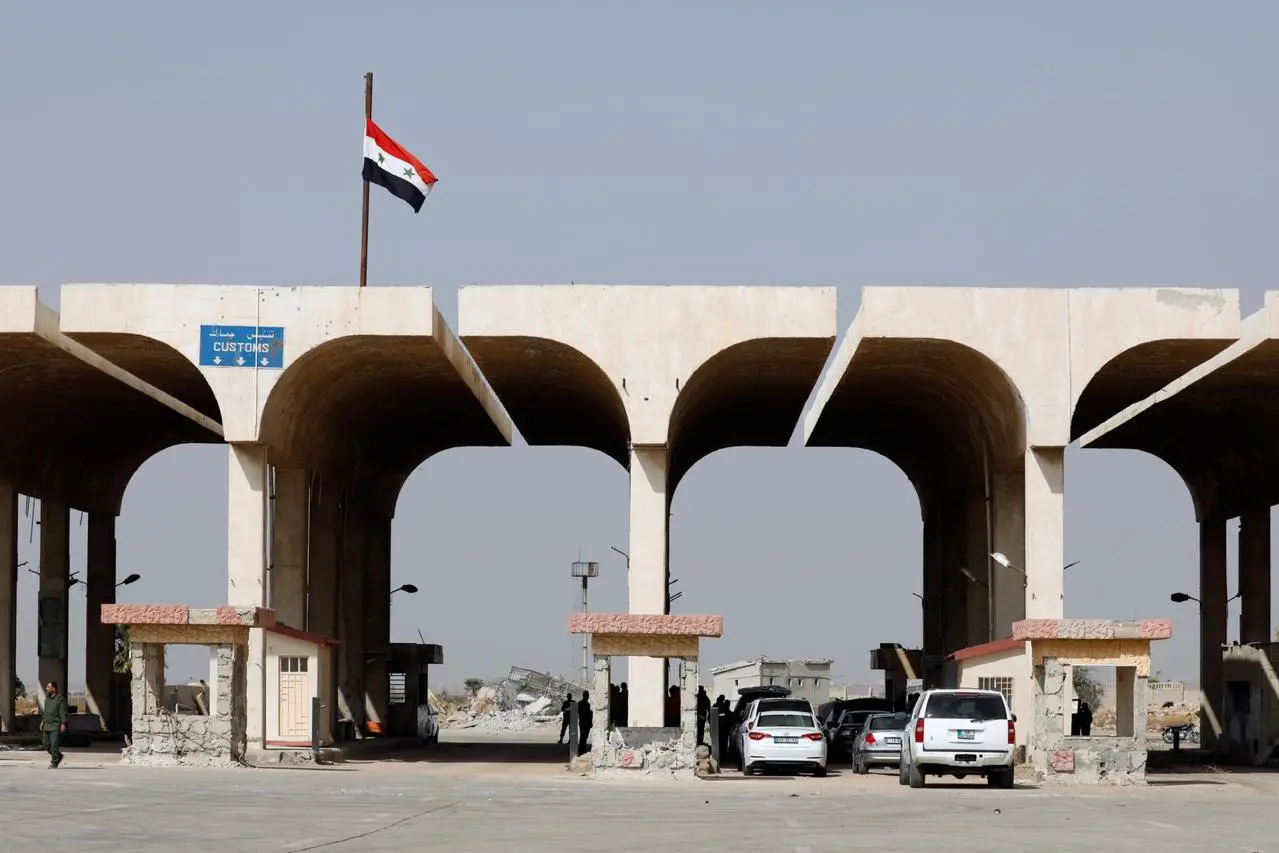PHOTO
Jordanian Interior Minister Mazen Al-Faraya said that the Jaber-Nasib crossing would operate at full capacity as of Wednesday after all technical and administrative arrangements were completed with the Syrian side.
In a statement carried by the Jordanian news agency, Petra, Al-Faraya added that the resumption of cargo and passenger movement through the Jaber-Nasib crossing, Jordan’s main gateway for goods from Lebanon and Syria to the Arab Gulf countries, is “aimed at stimulating trade exchange and tourism between the two brotherly countries.”
Jordan’s major trade route, located about 90 km north of Amman, was set to operate at full capacity from Aug. 1, but the decision was put on hold due to a surge in violence in Syria’s Daraa, the birthplace of the 2011 uprising.
In April 2015, Jordan closed its border crossing with Syria as a result of escalating violence in the Syrian bordering town of Nasib, which, at the time, was reportedly captured by the Syrian rebels and fighters from the Al-Qaeda-affiliated Nusra Front.
Also on Sunday, a high-level Syrian delegation, comprising ministers of foreign affairs, trade water, agriculture and electricity, met with their counterparts in Amman.
The two sides held “extended” talks on bolstering bilateral cooperation between the two countries, Petra reported.
Jordan, which is home to about 650,000 registered Syrian refugees, has been showing high activism toward Syria recently, with observers arguing that Amman is adopting an “interest-centered” and “pragmatic” approach on war-hit Syria.
Syrian Defense Minister Ali Ayoub, who is also army chief, met in Amman on Sunday with Jordanian Chief of Staff Gen. Yousef Huneiti.
The two sides discussed wide-ranging topics, including border security, the situation in southern Syria, fighting terrorism and confronting narcotics smuggling.
The meeting, which observers described as the “culmination” of Jordan’s diplomacy on Syria, came after Syrian troops recaptured several rebel-held areas in Daraa province, near Jordan’s border, under a cease-fire deal brokered by Russia.
Earlier in September, ministers from Jordan, Lebanon, Syria and Egypt met in Amman to discuss energy cooperation.
At a news conference after their meeting, ministers said that they discussed technicalities related to the export of Egyptian gas to Lebanon through Jordan and Syria.
In getting closer to Syria, Jordan seeks to protect its interests, political analyst Khaled Qudah said. “A unified and stable Syria lies at the heart of Jordan’s higher interests.”
“Of course Amman seeks increased economic cooperation with Syria and an implementation to the refugee crisis but its strategic goal is to bring Damascus back to the Arab world . . . Jordan wants Syria as a friend and not an enemy.”
Strategic analyst Amer Sabaileh described the Syrian army chief’s recent visit to Amman as the “culmination” of Jordan’s high diplomacy and coordination with Syria.
Sabaileh said that Jordan has been experiencing the consequences of the Syrian crisis, including refugees and security challenges, and so needed to adopt a “pragmatic” approach to protect its interests.
“Amman’s closeness to Damascus has to do with its weariness of the international community’s inaction on the Syrian war. Jordan wants a political solution to the more than ten years of war, or at least calm and security in its northern borders with Syria.”
Copyright: Arab News © 2021 All rights reserved. Provided by SyndiGate Media Inc. (Syndigate.info).





















